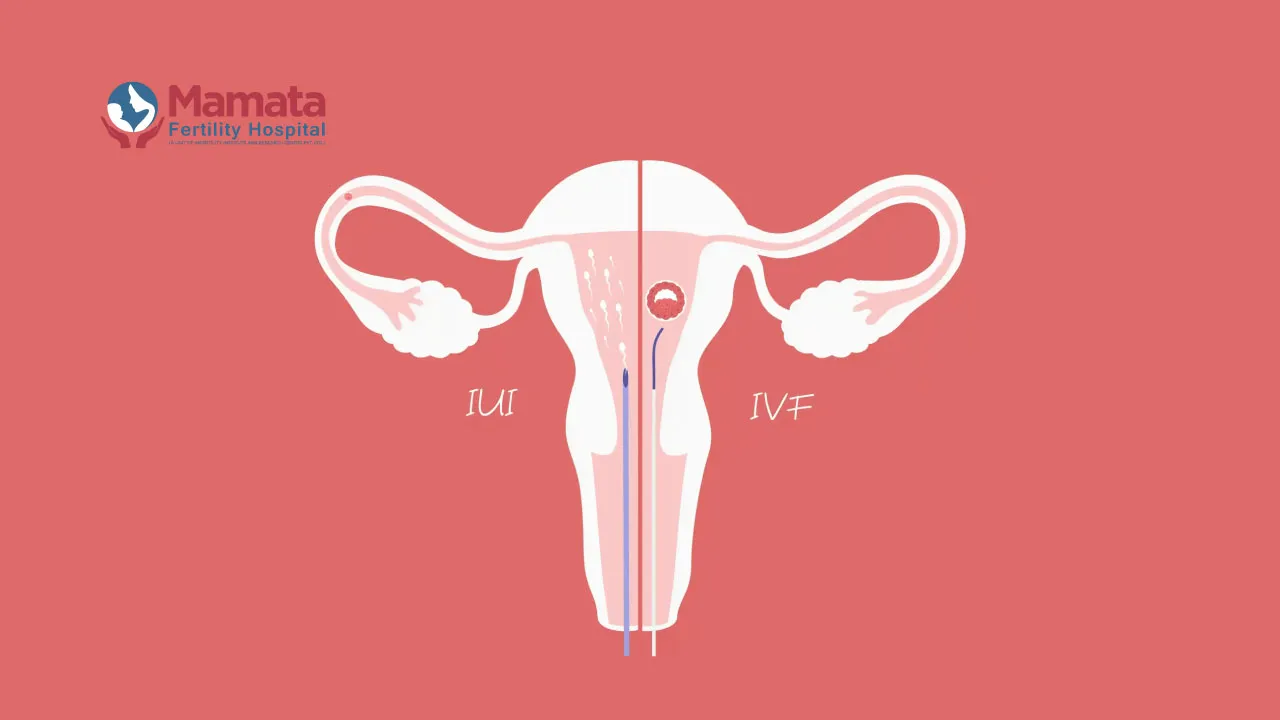When it comes to artificial fertility treatments, two of the most commonly chosen options are intrauterine insemination (IUI) and in vitro fertilisation (IVF). Couples often wonder which procedure is more painful, as they prepare physically and emotionally for the next steps in their fertility journey. In this article, we’ll explore both procedures, comparing their pain levels and discussing tips on managing any discomfort.
IUI and IVF Procedures
Both IUI (Intrauterine Insemination) and IVF (In Vitro Fertilization) are assisted reproductive technologies designed to help couples conceive when natural methods. IUI involves directly inserting washed sperms into a woman’s uterus to facilitate fertilization, while IVF consists of retrieving eggs from the ovaries, fertilizing them with the sperm in a laboratory, and then implanting the resulting embryos into the uterus. Each procedure has its unique processes, success rates, and considerations, but the ultimate goal remains – to achieve a successful pregnancy and bring joy to aspiring parents.
What to Expect During an IUI Procedure
Intrauterine insemination (IUI) is a relatively simple fertility procedure designed to increase the likelihood of sperms reaching the egg, thereby enhancing the chances of conception. The process involves the careful insertion of a thin catheter through the cervix into the uterine cavity. Once the catheter is in place, washed and concentrated sperm are deposited directly into the uterus, bypassing the cervix and facilitating closer proximity to the egg.
To prepare for IUI, women often undergo a process known as ovulation induction. This involves the use of fertility medications that stimulate the ovaries to produce one or more eggs. These medications can include oral agents like Clomiphene Citrate or injectable hormones such as FSH and LH. While these treatments are effective in increasing the number of eggs available for fertilization, they can also have side effects similar to those experienced with hormonal stimulation, such as mood swings, headaches, and hot flashes. Proper medical supervision is essential to monitor the response to these medications and adjust dosages accordingly. Overall, IUI is considered a less invasive and more cost-effective option compared to other assisted reproductive technologies like in vitro fertilization (IVF).
What to Expect During an IVF Procedure
In vitro fertilisation is a more complex process that involves several stages. The first stage is ovarian stimulation, where medications are administered to stimulate the ovaries to produce multiple eggs. Once the eggs are mature, they are retrieved using a needle guided by ultrasound. The retrieved eggs are fertilised in the lab, and the resulting embryos are monitored. A selected embryo is then transferred to the woman’s uterus.
Comparing Pain Levels Between IUI and IVF
Effects of Hormonal Stimulation in Both Procedures
Hormonal stimulation is a part of both IUI and IVF but is more intensive in the latter. The medications used can lead to side effects like bloating, mood swings, and mild abdominal discomfort. While these effects can be uncomfortable, they are generally manageable with the support of your medical team.
Egg Retrieval in IVF vs. Catheter Insertion in IUI
The egg retrieval process in IVF involves a minor surgical procedure that can cause cramping and mid pain. Generally performed under sedation, it is more invasive compared to the catheter insertion in IUI, which is typically quick and causes minimal discomfort. The sensations during IUI are often described as similar to menstrual cramps.
Pain Management Tips for IUI and IVF
Managing pain during IUI and IVF is crucial for comfort and mental well-being. Here are some strategies to consider:
- Before the procedure:
- Communicate with Your Doctor: Discuss any concerns with your gynaecologist, such as Mamata Fertility Hospital, to tailor a plan that addresses your comfort.
- Educate Yourself: Understanding the procedures can alleviate anxiety and help you prepare mentally.
- During the procedure:
- Relaxation Techniques: Deep breathing and mindfulness can reduce stress and make the experience more manageable.
- Pain Relief Options: Over-the-counter pain relievers may be recommended by your doctor for post-procedure discomfort.
- After the procedure:
- Rest and Hydration: Give yourself time to recover, and ensure adequate hydration to alleviate bloating from hormonal stimulation.
- Support Network: Lean on your partner, friends, or support groups for emotional and practical support.
Psychological and Physical Preparation for IUI and IVF
Preparing for fertility treatments extends beyond the physical aspects. Psychological well being is equally important:
- Counselling: Consider seeking counselling to address any emotional concerns.
- Lifestyle Adjustments: A healthy lifestyle can positively impact treatment outcomes, including regular exercise and balanced nutrition.
- Mind-Body Connection: Practices such as yoga and meditation can enhance overall well-being.
Conclusion
Ultimately, the choice between IUI and IVF depends on various factors, including medical history, and personal preferences, and feel free to discuss your concerns with a trusted gynaecologist in Hyderabad, such as Dr. Mamata Deenadayal. Both procedures offer unique pathways to parenthood, and understanding the potential discomforts can empower you to make an informed decision. Remember, pain is subjective, and what one person finds uncomfortable, another may find manageable. Prioritise open communication with your healthcare provider to ensure the best possible experience on your fertility journey.




